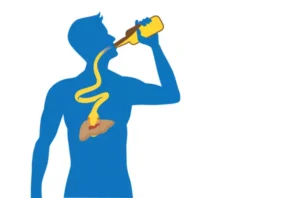
If you want to help, you first need to determine if the person is actually an alcoholic. A person can use various strategies to help them stop drinking alcohol. It is helpful for individuals to understand their motivations and goals behind it. Having a personalized plan can also increase the success rate of stopping drinking. how to overcome alcoholism In addition, addictions can sometimes mask underlying mental health problems, such as anxiety, depression, sleep disorders, and even psychosis.
Healthy Hydration Habits for Better Health and Well-Being
From there, you may need social support, consistent self-care, and new routines that can help redirect your mind. Additionally, employers may be less likely to hire someone with a history of addiction, fearing they might relapse or be unreliable. There are many support options available that can help guide you through alcohol withdrawal, as well as abstaining from alcohol after withdrawal. Moderate or binge drinkers can likely quit alcohol on their own. However, medical complications can occur during the acute phase of withdrawal.

Help for Alcoholics: Where to Find Sobriety Resources

Learn how to find higher quality, science-backed alcohol treatment to raise your changes for success. Certain medications have been shown to effectively help people stop or reduce their drinking and avoid a return to drinking. The good news is that no matter how severe the problem may seem, most people with AUD can benefit from some form of treatment. Many others substantially reduce their drinking and report fewer alcohol-related problems. Instead, these are groups of people who have alcohol use disorder.
- For example, if your initial goal was to stop drinking on weekends but socializing makes it too challenging, it might be time to adjust.
- He or she may not needself-help tools, but those resources might work for you.
- Write your drinking goal down and keep it where you will frequently see it, such as on your phone or taped to your refrigerator.
- Whatever it is that you need, Sunnyside is here to walk alongside you, making each step towards balance easier.
- If you’ve become dependent on alcohol, cutting it out of your life may produce withdrawal symptoms, such as a rapid heartbeat, high blood pressure, sweating and shaking.
- Perceived social support can play an important part in alcohol use recovery.
Tools & Resources
- Try to remain neutral and don’t argue, lecture, accuse, or threaten.
- Family and friends can provide encouragement and support when you stop drinking.
- Strong support systems are critical in overcoming addiction, and when stigma interferes, it can leave individuals feeling lonely and unsupported.
- Letting others know about your choice to stop drinking may help motivate you to stick with your decision.
- Attempting to reason with a partner who is intoxicated is often futile and can lead to heightened conflict.
- Good alcohol treatment prepares you for these challenges, helping you develop new coping skills to deal with stressful situations, alcohol cravings, and social pressure to drink.
There are times when cutting back on your drinking can be helpful, https://ecosoberhouse.com/article/do-alcoholics-drink-every-day/ but there are times when quitting alcohol altogether is the best solution. If you want to stop drinking for good, don’t let past relapses discourage you from trying to quit. It is normal and even expected for people to try to quit at least once before achieving sobriety. Caring for a person who has problems with alcohol can be very stressful. It is important that as you try to help your loved one, you also find a way to take care of yourself. It may help to seek support from others, including friends, family, community, and support groups.

The benefits of drinking less alcohol

It can come from friends, family, or even healthcare providers. The alcohol withdrawal timeline varies, but the worst of the symptoms typically wear off after 72 hours. People who are daily or heavy drinkers may need medical support to quit. Stopping drinking abruptly can lead to seizures and can even be fatal.
- Support can come via therapy, support programs, family, and friends.
- Relapses happen during rehabilitation, but what’s important is how you move forward from it.
- The more specific, realistic, and clear your goals, the better.
- It can actually be a healthy sign of self-awareness and the desire to make changes that help you live better.
